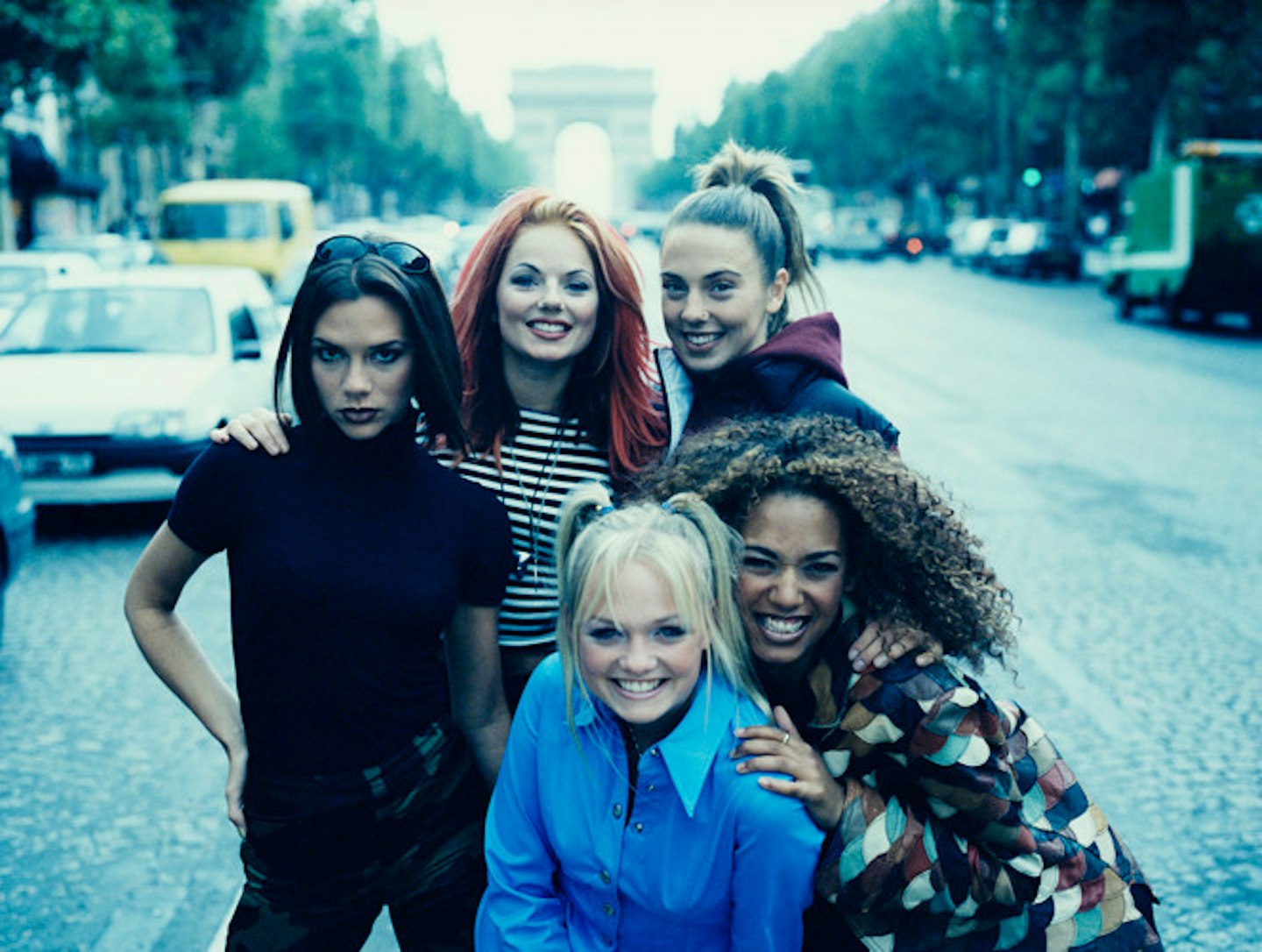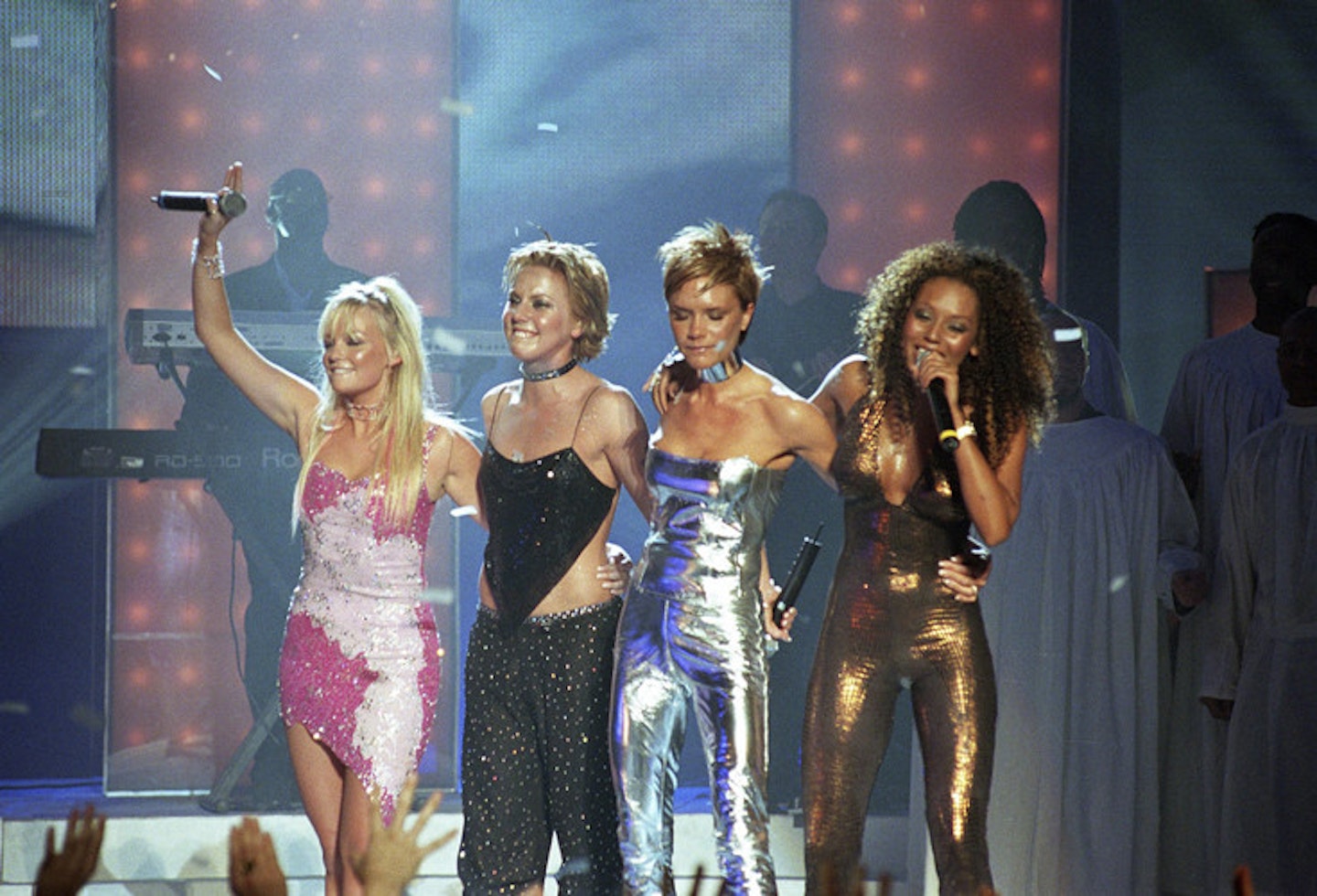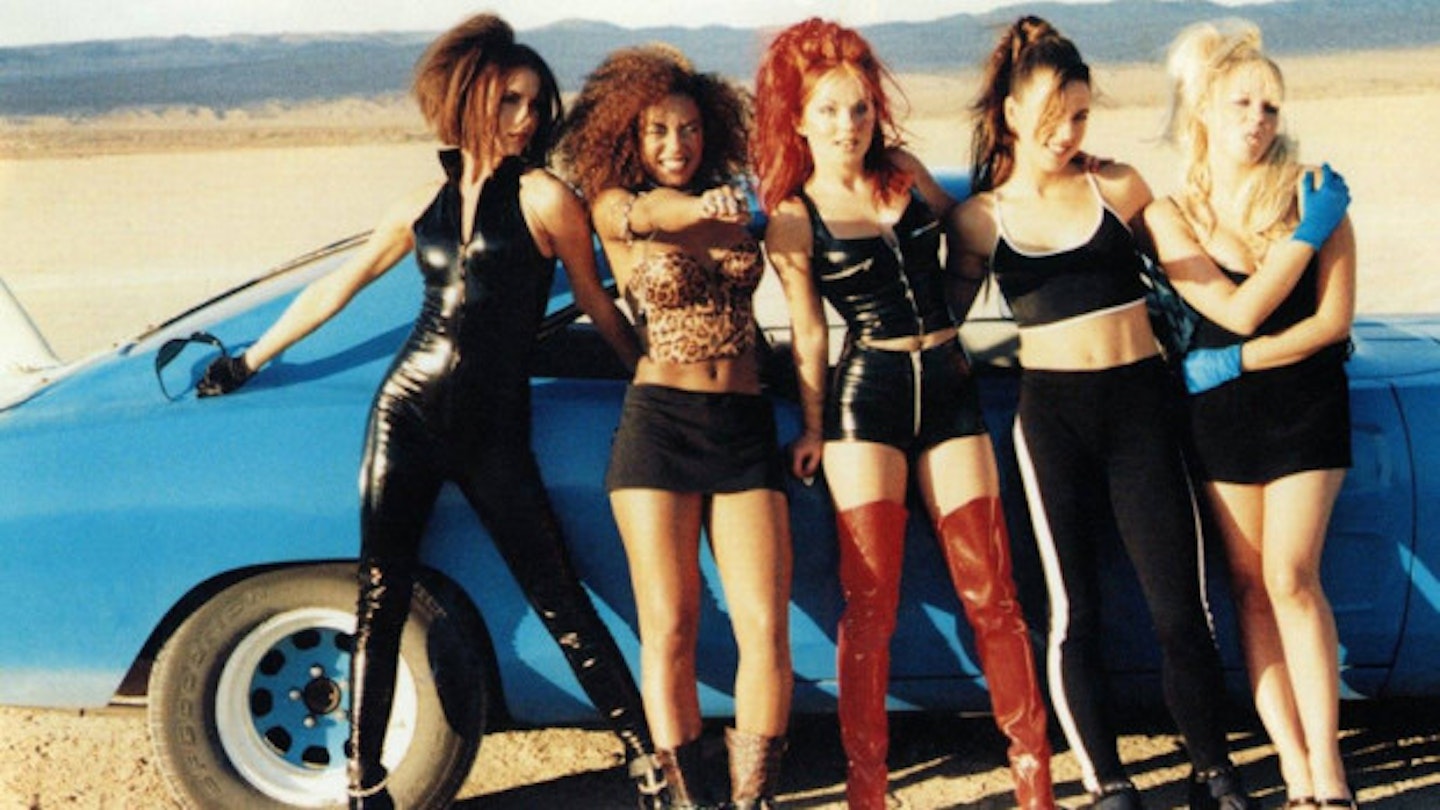Remember the desert at the beginning of* Say You’ll Be There*? So sparse and dry, its cracks were wide enough to trap Geri Halliwell’s 5-inch red leather platform heels. That’s what the landscape of British female-fronted pop music looked like this time 20 years ago, the day the Spice Girls released Wannabe and changed chart music forever. As they went on to sell 80 million records and score nine number ones, my support for the group wavered. Yes, I always got to be Ginger Spice at dress-up parties, but by 1997’s bonfire night, feeling disheartened by my school’s new obsession with buying and re-selling Spice Girls photos, I threw a glossy picture of Mel C onto the pyre. Yet in spite of the overbearing marketing, and the Spices’ subsequent fall-outs and failed comebacks (they're currently wheeling out yet another incarnation, GEM, featuring Geri, Emma and Mel B), in 2016, I’m so glad these messy women have existed.

In the mid-90s the UK charts hosted female imports like Mariah Carey, Celine Dion, Lauryn Hill of The Fugees and TLC. And the UK had Radio 2 fodder from Gabrielle and M People. Gina G, whose excellent Oooh Ahh (Just A Little Bit) won Eurovision and scored a number one, was the exception which proved the unwritten rule that exempted British women from pop, and dance-pop one hit wonders presented lithe young models lip-syncing over samples of other women’s bigger, gutsier voices.
But then, in 1996, when I was eight, the Spice Girls arrived. This was a long time coming, when you consider my niece has been enjoying the radio edits of female acts like Katy Perry, Taylor Swift and Rihanna since she was three. Finally, pop was back, and not only were Baby, Ginger, Scary, Posh and Sporty a female-fronted act marketed directly towards young girls, but they had tunes. The songs were peppy, funk-driven dance-pop and the videos were raucous, punching up against the moneyed and the mean, splicing the hackneyed stereotype of sad-looking boys meaningfully clenching their fists. Plus, the lyrics - at least for Wannabe, the Spices’ moon-landing - were about unity, friendship and having a laugh. What was not to like?
Well, plenty; without naming names, the Spices’ talents were on a sliding scale, and even those who later succeeded in solo projects (that includes Victoria Beckham’s fashion range!) would have never done so without having first been in the group. But that just made me love them more. I related to the Girls’ rally cry for female kinship (all boybands ever hyped up was unrequited female-male desire). And I could aspire to have the same gumption and drive that got them past their many flaws. These gobby women worked their arses off to occupy a space that had previously locked them out, and the more they were accepted, the less they conformed. When they met Prince Charles at a gala, Mel B told him to get his tongue pierced, before Geri Halliwell handed him the sort-of compliment: ‘You’re actually quite sexy!’. He left the encounter with a cheekful of ruby red lipstick marks.
By 1997, when the Spices won a viewer-voted Brit award, Mel C threatened: ’Eh, Liam, come and ‘av a go if you think you’re ‘ard enough!’ at the plinth, beckoning the Gallagher brother over. The Spices didn’t just bring pop back, they treated their male Britpop cohort as rivals on an equal footing and made pop burst with pride. Pop, just like fashion, is feminine, effete, a bit gay. That’s all totally fine by me, but both realms have been consistently ridiculed by those who feel left out by them. Grown men, in 1996 and now, spend Saturdays standing shoulder to shoulder chanting swearwords as overpaid strangers kick balls around on a football pitch. Somehow that’s not hysterical. But happy music about feelings sung by women? Rubbish. The billion-pound fashion industry that keeps women worldwide employed and people literals clothed? A joke worthy of two Zoolander films. Laughing at things women and girls (and gays!) enjoy might seem like fair cynicism about modern commercialisation, but the more you look at the people doing it the more you realise it’s simply a foil to laugh at women and girls themselves, to belittle their desires and choices.
As Geri learned after heralding Margaret Thatcher a proponent of Girl Power, it’s always risky to suggest that any woman at the top is by default a good woman. Of course, the Spices’ un-PC behaviour went so much further than Who Do You Think You Are’s lyrics being ripe for adaptation to ’The race is on to get out of YOUR bottom’. Wannabe’s video opens with Emma - of all of them! - nicking a hat from a homeless man. Spice Up Your Life features the line ‘Yellow man in Timbuktu’. And then there’s Mel B being given the moniker ‘Scary’ for no discernible reason (each of the girls seemed to leave every interviewer quaking in their boots) other than being mixed race. But each of those communications were signed off by people other than the Spices themselves, whose unpolished style was much more saucy than rude. Some might argue that kids only started being exposed to raunch when the Spice Girls turned up. They’d be the same people forgetting Peter Andre’s Mysterious Girl and George Michael’s (stupendously sexy) Fastlove and, um, the fact the UK’s biggest ‘family’ newspaper was, in 1996, publishing topless photos of 16-year-old girls. They profited from raunch, sure, but they did not invent it.
Whatever the Spice Girls wore - and sometimes they did cover up in a huge fluffy faux-fur - it was always wrapped it up in a mantra that goes beyond clothing: Girl Power. This was a rip-off; Shampoo, a south-London pop duo had named their (third!) album Girl Power after a zine Kathleen Hanna, lead singer of Bikini Kill, had created in 1991. Bikini Kill was the band behind Riot Grrl, a DIY feminist punk movement in the States, which called for ‘Revolution. Girl. Style. Now!’ Ideally, Kathleen and her acolytes would have spread their message globally via mixtape and people would have enacted the revolution and universal gender equality would be attained. But how to make it palatable, for a wider audience? There’s revolution and there’s winning over the unconverted. And if just one thread of the comforting-yet-grungy jumper that was Riot Grrrl made it into the broader consciousness, it was the message ofGirl Power that the Spice Girls weaved into millions of girls’ heads.

Spice Girls-branded stickers, dolls, magazines, velcro trainers, pencil cases and yoghurts may have long evaporated like the mists of Spice Girls-branded Impulse sprays of yore. But looking around, right now, you can see that Girl Power took hold. There are thousands of ways to be a feminist and thousands of ways to become one, but the influence of a girl group brimming with ambition and bolshiness on a whole generation of young women has not gone unnoticed.
It’s crass to judge everything by how feminist it is, using it as a pseudo-worthy yardstick by which to judge women, to tell them they’re not good enough. By today’s standards, no, the Spice Girls weren’t ideal feminists. But they got little ginger me, in the suburbs, and millions others like me, thinking about our cultural relevance as young women, and for that, I’ll always be grateful.
Like this? Then you might also be interested in:
The Spice Girls Are Supposedly Holding Auditions. Could You Be The Next Posh Spice?
Apparently These Two Spice Girls Have Fallen Out. This Is Terrible Thursday News.
This article originally appeared on The Debrief.
